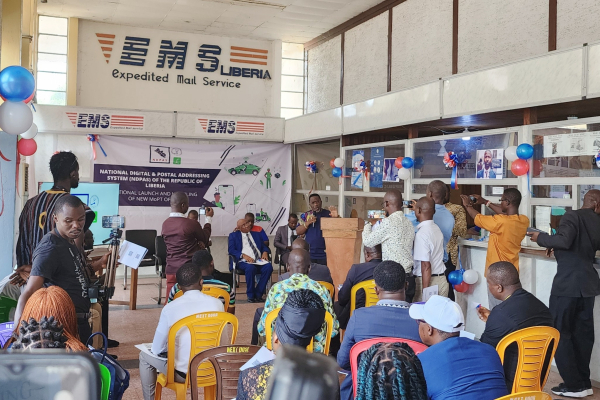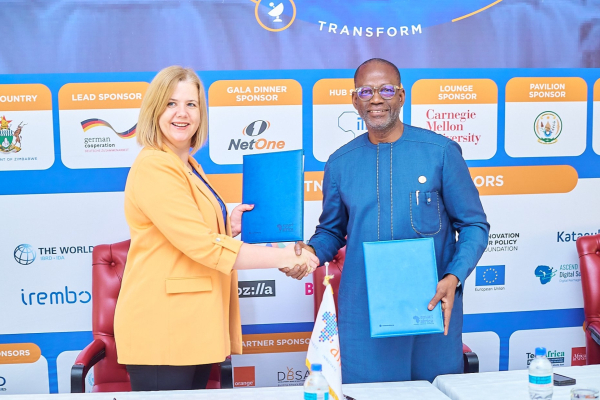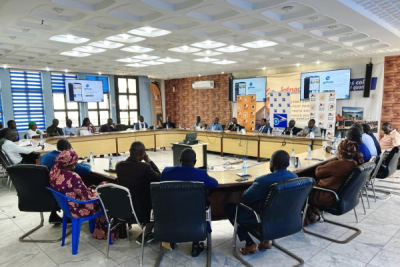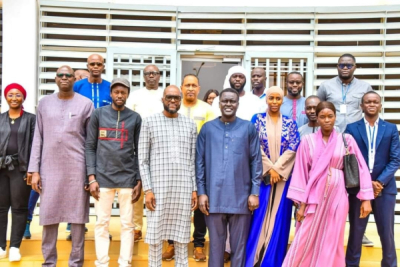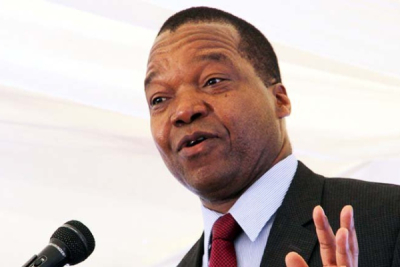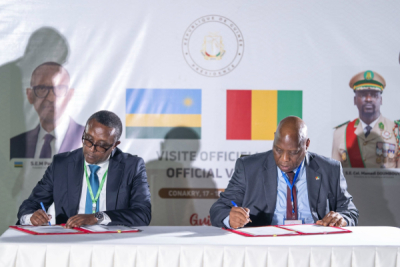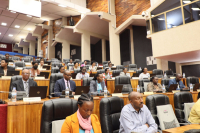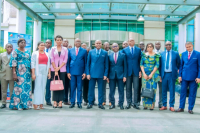
Public Management (604)
In 2009, the Universal Postal Union encouraged its members to upgrade their addressing systems. With the current digital transformation wave sweeping across the tech landscape, many nations are seizing this opportunity to modernize their postal sectors.
Liberia recently unveiled a digital addressing system, SnooCODE, launched on April 25 in the capital city, Monrovia, by Cooper Kruah, the Minister of Posts and Telecommunications.
Developed by the UK-registered company of the same name, based in Ghana, SnooCODE operates on the mapping of the Liberian national territory. It's versatile, allowing for sending mails, tracking parcels, and even serving as a digital signature.
"Today, every corner of Liberia has a digital address, and efforts are underway to complete the operationalization of codes and to bring everyone on board. This system has been designed to address pressing health issues via technology," declared Minister Kruah.
He further revealed that the system underwent two trial phases in 2013 and 2019, as part of Liberia's initiative to foster digital technologies within the nation.
Sesinam Dagadu, the founder and CEO of SnooCODE Limited, stated that the new digital addressing system is among the most advanced globally. Users can access this system through an app available for download on the Google Play Store and App Store, with both online and offline functionality.
Once fully implemented nationwide, SnooCODE will bolster the efficiency of emergency services and security forces. It will also propel the growth of e-commerce and postal activities and streamline the duties of tax authorities.
Samira Njoya
To achieve digital inclusion and digitally transform the continent, Smart Africa Alliance needs to collaborate with several actors. Hence the recent partnerships.
On the sidelines of the 6th edition of the Transform Africa summit (April 26-28) in Zimbabwe, the Smart Africa Alliance signed partnership agreements to promote digital transformation in all key sectors.
Notably, it signed agreements with the Internet Society, Hitachi Systems Security, Estonian ICT, Zhejiang University, and the Innovation for Policy Foundation (i4Policy).
With the Internet Society, Smart Africa signed a memorandum of understanding to collaborate on a range of issues, including community network development, measuring Internet resilience and reliability, and capacity building.
The agreement with Canadian company Hitachi Systems Security aims to assist and support African cyberspace among other things.
As for the agreement with the Estonian association Estonian ICT, it provides for the design, development, deployment, and operation of public digital infrastructure on the continent.
The collaboration with Zhejiang University will contribute to knowledge generation and dissemination through the Smart Africa Digital Academy (SADA).
With the Innovation for Policy Foundation, Smart Africa envisions collaboration on various topics consistent with their respective vision and mission. i4Policy advocates and lobbies for the adoption of innovation-friendly policies in various sectors, including digital.
It is worth noting that the partnership agreements add to the one signed on Tuesday, April 25 with the African Development Fund (ADF) for the launch of the IDECT project aimed at boosting e-commerce in Africa
Senegal wants to recapitalize its postal company to save it from its ongoing problems. One of the main solutions considered for this restructuring bid is service digitization.
Last Tuesday, Senegal’s public postal operator La Poste and mobile money company Orange Finances Mobiles Senegal signed a partnership agreement to implement innovative projects.
On its Twitter account, La Poste indicates that the agreement focuses on customer management with innovative and inclusive tools as formulated in its strategic expansion plan PSE-La Poste.
A few months ago, Senegal decided to restructure its postal company and revive its activities. For that purpose, sectoral actors elaborated a strategic expansion plan aimed at transforming the public postal company, modernizing its sorting and hybrid mailing center, setting up a modern customer relations center, improving existing processes, products, and services, and introducing innovative services.
To successfully implement the expansion plan, La Poste joined forces with choice partners, including Orange Finances Mobiles and Ecobank.
Under the new partnership, La Poste will benefit from Orange’s experience in the development of innovative services and products. Meanwhile, Orange will capitalize on the postal operator’s assets and advantages, such as its proximity to the population and its extended network that allows it to be a reliable partner in the rapidly changing mobile money industry.
Samira Njoya
The African video game market is currently growing steadily with a rising number of gaming communities being built on the continent. It is therefore important to create a framework to develop the sector and train future professional gamers on the continent.
On April 19, 2023, in Dakar, the Senegalese eSport promotion committee CONAPES and Senegal Digital (SENUM SA) signed a partnership agreement to promote eSport in the country. The agreement aims to allow access to digital development centers (ESS) for gamers.
On Twitter, CONAPES explains that the partnership is an opportunity to democratize eSport, but also an opportunity to offer training in professions related to gaming, in line with the digital inclusion so desired by and for the Senegalese youth.
Under the agreement, SENUM SA and CONAPES will build a network of 45 ESSs dedicated only to gaming. Therefore, gamers will access the resources available to all the ESSs present in the 14 regions, including 6,000 kilometers of fiber optic cable offering very high-speed internet. The main objective is to create 45 eSport Clubs (Pro Gamer), 45 eLeagues, and a national eSport competition, namely the Senum Esport Competition (SECO).
The partnership will also give CONAPES staff access to a vast training and mentoring program on professions related to electronic games, immersive sports, cybersports, techsport, and phygital sports including innovative technologies, artificial intelligence, drones, and exoskeletons...
For CONAPES, with such an agreement, Senegal becomes the first African country to launch a LAN network dedicated to competitive gaming.
Samira Njoya
Due to the lack of confidence in its currency, Zimbabwe has decided to introduce a digital currency backed by gold. The currency is expected to let citizens store value and protect themselves from exchange rate volatility.
Zimbabwe will soon launch a gold-backed digital currency in an attempt to stabilize its fiat currency, whose continued depreciation against the U.S. dollar is strangling the economy, local media outlet The Sunday Mail reported last Sunday, citing Central Bank Governor John Mangudya (photo).
According to the media outlet, the central bank governor explained that the planned currency would enable people with tiny quantities of Zimbabwean dollars to trade their money for digital tokens to preserve value and hedge against currency fluctuation.
He said the current high volatility in the exchange rate is linked to expectations of an increase in the supply of foreign currency in the market, with the start of the tobacco auction season. Indeed, the Tobacco Industry and Marketing Board (TIMB) announced on March 8 that national tobacco production is expected to increase by 8.5% in 2023 to 230 million kg, thanks to good weather conditions and an increase in planted area.
Zimbabwe is facing a severe economic crisis since the early 2000s after former President Robert Mugabe's land reform broke up a key sector of the country's economy and forced it to stop repaying nearly $13 billion in debts to the World Bank, the African Development Bank (AfDB), the European Investment Bank (EIB) and Paris Club member countries.
The expropriation of white farmers discouraged foreign investment and led to a sharp drop in exports, prompting the Mugabe regime to start printing large amounts of money, leading to a long period of hyperinflation. Against this backdrop, the government was forced to abandon the Zimbabwean dollar in favor of the U.S. dollar in 2009. The Zimbabwean dollar was then reintroduced in 2019 in an attempt to revive the stagnant economy, but it has since continued to depreciate against the greenback.
Confidence in the Zimbabwean currency has been low since people saw their savings wiped out by hyperinflation that reached 5 billion percent in 2008, according to the IMF. Most Zimbabweans prefer buying U.S. dollars on the black market to keep them as savings.
Partnerships between African countries are essential to stimulate economic growth, create jobs and let the continent successfully implement its digital plans. The agreement between Rwanda and Guinea falls in line with those goals.
Last Tuesday, Rwanda and the Republic of Guinea signed a memorandum of understanding for digital cooperation.
According to Mory Sanda Kouyaté (photo, right), Guinean Minister of Foreign Affairs, the memorandum covers cooperation in ICT, posts and telecommunications, digitization, and e-governance.
For several years now, Rwanda has made digital technology a pillar of development. To achieve its goals, the country launched in 2017, a National Transformation Strategy aimed primarily at providing quality services and care in the public and private sectors by 2024.
Guinea, for its part, has also launched digital projects to make life easier for its citizens. The transitional government recently launched an institutional reform program to equip the country with new systems and reliable policies adapted to the needs of its population.
With that bilateral agreement, the two countries will contribute their experience to further develop their respective ICT sectors and position themselves in East and West African digital markets.
By establishing a digital identification system, the Rwandan government plans to address the challenges faced by citizens who have no identity documents when accessing essential services.
The Rwandan parliament recently approved the revision of a bill governing registration in the national single digital identity system.
The draft law presented on Thursday, April 20, by ICT Minister Paula Ingabire, aims to give the government the required approvals to issue digital identity cards to stateless Rwandans and newborns.
“The enactment of the new law relating to enrollment into a single digital identity system will enable the country to close the existing gap in the current population identification system to a more advanced, effective, and efficient delivery of services in both private and public sectors,” said Paula Ingabire.
The project aims to establish a new digital identity card for Rwandans living within or outside the country. It will consist of a physical copy embedded with a QR code containing the holder’s biometric information, as well as a digital copy.
According to Minister Ingabire, the digital identification project will be implemented, over three years, by the National Identification Agency (NIDA) with funding from the World Bank ($40 million).
If passed, the new law will end the problems faced by stateless and other undocumented persons in the country. It will also solve the problem of scattered, contradictory data in the various databases of different institutions, recorded on paper.
For the ICT Minister, this project will be a catalyst for the development of a strong digital economy and a strong digital service delivery ecosystem that will improve productivity, income, and social welfare.
Samira Njoya
By reinforcing its cooperation with Estonia, which is the e-governance leader in Europe, Angola wants to become a digital government offering user-friendly and secure ICT solutions that make life easier for its citizens.
Last Friday, Angolan State Minister Adão de Almeida and Estonian IT Minister Kristjan Järvan signed a Memorandum of Understanding to strengthen cooperation between the two countries. The MoU, signed in Tallinn, Estonia, covers cooperation in the areas of digital governance, modernization of the administration, and capacity building.
“Estonia is one of the most advanced and innovative digital societies in the world, but reaching it is the fruit of decades of work. We are happy to share the accumulated knowledge, skills, and experience because digital capabilities are key to the social and economic development of any country,” said Kristjan Järvan.
Indeed, for several years, Estonia has been a model in the use of digital technology to simplify the lives of citizens, improve political efficiency and boost the economy. The country has succeeded in going digital. In 2020, the country was ranked 3rd in the E-Government Development Index unveiled by the United Nations. Last year, it was the 8th country with one of the best e-government development indexes in the world.
This status of e-government champion has earned the country invitations from many African countries -including Benin, the Democratic Republic of Congo, and Mauritius- for digital cooperation.
The Memorandum of Understanding it signed with Angola thus allows the latter to capitalize on its digitization experience. The agreement will also enable Estonian companies to enter the Angolan market and more African countries.
Samira Njoya
Digitalization has proven to have positive impacts on socioeconomic development. In that regard, most African countries, Congo included, have placed digitization on the list of their key priorities.
This year, Congo will invest CFAF13.995 billion ($23.3 million) to strengthen residents’ access to the Internet and digital services. During the first meeting of the steering committee of the Digital Acceleration Project (PATN), several projects were discussed.
At the meeting, Minister of Digital Economy Leon Juste Ibombo explained that the activities to be carried out this year will help, among other things, create "a secure government intranet, a single portal for e-government services to citizens and many information systems to better manage the services offered to citizens.”
Of the CFAF13.995 billion budget set for 2023, CFAF5.720 billion will be used, among other things, to develop broadband connectivity, particularly in the universities Marien Ngouabi and Denis Sassou Nguesso in addition to some administrative buildings and isolated areas such as the department of Likouala. CFAF3.737 billion will fund the improvement of digital services offered to the population, civil registration services notably.
This session of the PATN steering committee marks the effective start of the 5-year project, backed to the tune of $100 million by the World Bank, €25 million ($27.5 million) by the European Investment Bank (EIB) and a €15 million ($16.5 million) loan from the European Union.
By trying to make the Internet and digital services accessible to everyone, Congo bets on the digital economy as a driver of socioeconomic growth, productivity, and good governance.
Samira Njoya
According to UNESCO, investing in science, technology, and innovation (STI) is essential for economic development and social progress. But, it is all the same important to ensure access to the right information about the sector to enable effective and appropriate usage.
The Federal Government of Nigeria, on Tuesday, April 11, officially inaugurated the Nigerian Science, Technology and Innovation Television called "NSTI TV".
According to Minister of Science, Technology, and Innovation, Dr. Adeleke Olorunnimbe Mamora (photo, center), NSTI TV is a multilingual science channel that will broadcast content in English, Yoruba, Igbo, and Hausa and will be accessible on any internet-enabled device.
“As part of our plans for ease of access to information, we have developed an indelible and robust Television that is Terrestrial, Satellite, and Internet-Based Science Over-The-Top (OTT) TV channel dedicated to Science and Technology knowledge dissemination, with a strong commitment to spreading scientific awareness, especially with Nigerian perspectives, ethos, and cultural milieu,” the government official said.
Over the past few years, Nigeria has implemented several actions to advance STIs and integrate them into Nigerians’ daily habits. According to Adeleke Mamora, if effectively exploited, they can propel Nigeria into the list of the top 20 economies in the world by 2030.
This television station was thus introduced as part of the Implementation of Executive Order No. 5 For the Development Of Local Content In Science, Engineering, And Technology. To this end, it will focus on Nigeria's contributions to STI by publishing the latest results and products of all research institutions and the latest developments in STI in Nigeria and the world.
According to the Director General of the National Space Research and Development Agency (NASRDA), Dr. Halilu Shabba, NSTI TV is a milestone for the agency as 25% local content was used in the creation of the channel.
Samira Njoya
More...
Kenya wants to become a reference in digital transformation in Africa by 2027. To finance the projects it plans for that purpose, it seeks the support of the World Bank and private investors.
The World Bank will provide $390 million to finance the construction of Kenya’s digital infrastructure, a release dated April 5, 2023, informs.
According to the Bretton Woods Institution, the financial resources will fund the first phase of the Kenya Digital Economy Acceleration Project. That first phase focuses “on expanding access to high-speed internet, improving the quality and delivery of education and selected government services, and building skills for the regional digital economy.”
“Broadening access to digital technologies and services is a cross-cutting pathway to accelerate economic growth and job creation, improve service delivery, and build resilience,” said Keith Hansen, World Bank country director for Kenya, Rwanda, Somalia, and Uganda.
A few weeks ago, Minister of Digital Economy Eliud Owalo announced that Kenya was in talks with the World Bank to obtain $600 million to fund its Digital Superhighway Project.
Phase 1, which has been financed, will run from 2023 to 2028. Phase 2 will run from 2026 to 2030, focusing on building a secure, data-driven environment to enhance digital service delivery and innovation for the regional digital economy.
According to Keith Hansen, the Kenya Digital Economy Acceleration Project aims to make the country's growth more equitable by reducing disparities in digital skills and connectivity, and expanding the digital marketplace.
Samira Njoya
Senegal, through its digital strategy, aims to become an innovative leader in Africa by 2025. However, several projects are still lagging, two years before the deadline. Therefore, the country is multiplying partnerships to accelerate its implementation.
Last Saturday, the Senegalese Minister of Communication Moussa Bocar Thiam (photo, left) announced a memorandum of understanding with the UAE company Presight ai LTD.
On Twitter, the government official indicated that the new partnership aims to support Senegal in the implementation of various projects, namely digital identity and addressing and tax digitization projects.
Under the newly signed MOU, Senegal will receive financial support for the implementation of the digital projects mentioned. The digital addressing project was initiated in February 2021 to map the entire national territory and assign a digital address to each geographical location.
The digital identity project, launched on June 24, 2022, aims to provide an operational, reliable, secure, and accessible digital identity to Senegalese users by 2024. As for the digitization of taxes, the project was launched several years ago, to allow online tax filing and payment.
On Monday, April 10, 2023, Moussa Bocar Thiam also signed a memorandum of understanding with the company PANAMAX in Dubai. That MoU finances the development of a digital post solution and covers the company’s participation in the digital week "SENEGALCONNECT" - May 16-20, 2023 in Dakar- organized by the Ministry of Communication, Telecommunications, and Digital Economy.
Samira Njoya
Cameroon, like several African countries, has officially adopted online visas. The system announced months ago will become effective in a few days.
Starting from April 30, 2023, applications for Cameroonian visas will be exclusively made online, announced Minister of External Relations, Lejeune Mbella Mbella, through a release issued on Thursday, April 6.
According to the release, regardless of the applicant’s geographic location, visa applications must be submitted on www.evisacam.cm following established administrative procedures. After the application, visa fees will be paid via various methods, namely Mastercard, Visa, Paypal, Mobile Money, Orange Money, Moov, Wave, Safaricom, Airtel, Vodacom, and Africell.
An online visa authorization will then be issued to the applicant who will be able to go either to a diplomatic mission or to a border post to retrieve the visa within three days. In this final stage, applicants’ biometric data, fingerprints, facial images, etc., will be collected.
The Cameroonian government received the equipment for the project from Abidjan-based company Impact Palmarès R&D SAS in June 2022. The bill updating the legal framework was submitted to the National Assembly on July 2, 2022, and the decree updating the conditions of entry, stay, and exit of foreigners in Cameroon was signed last month by the President of the Republic, Paul Biya.
The reform prescribed by the President of the Republic is the first step toward the digital transformation of Cameroon’s diplomatic apparatus. According to Minister Lejeune Mbella Mbella, "the e-visa system [aims] to make Cameroon a more attractive destination, address the grievances of the Cameroonian diaspora and upgrade the consular system to international standards.”
Samira Njoya
Nigeria plays a key role in the African entrepreneurial ecosystem. To consolidate this position, the country is staking resources to further stimulate innovation, create jobs and promote economic growth.
Muhammadu Buhari (photo, left), the outgoing president of the Federal Republic of Nigeria, inaugurated the National Council for Digital Innovation and Entrepreneurship (NCDIE) on Wednesday, April 5.
The NCDIE, chaired by President Buhari, has 13 other members and its mission is to promote the development of the country's digital economy and create an enabling environment for entrepreneurs to flourish.
The council will also oversee the implementation of the Nigeria Startup Act 2022, a law enacted last December to stimulate the growth of innovative startups and small and medium enterprises (SMEs) in the country.
“The law, which was developed as part of a collaborative approach between the Office of the President and the Ministry of Communications and Digital Economy, with support from the technical ecosystem, provides incentives and support to start-ups, such as tax breaks, access to finance, ease of doing business, intellectual property protection and participation in government procurement,” said Muhammadu Buhari.
Nigeria's start-up ecosystem still faces significant challenges such as access to finance and the high cost of creating original products. Despite these obstacles, Nigeria has been at the forefront of startup growth in Africa in recent years with more than $4 billion raised between 2019 and 2022, the president reported.
Thus, the implementation of the Nigeria Startup Act will be an important step in addressing these challenges and promoting the growth and inclusiveness of the national startup ecosystem. According to President Muhammadu Buhari, this will help consolidate and develop the gains made in the digital economy.
Samira Njoya


